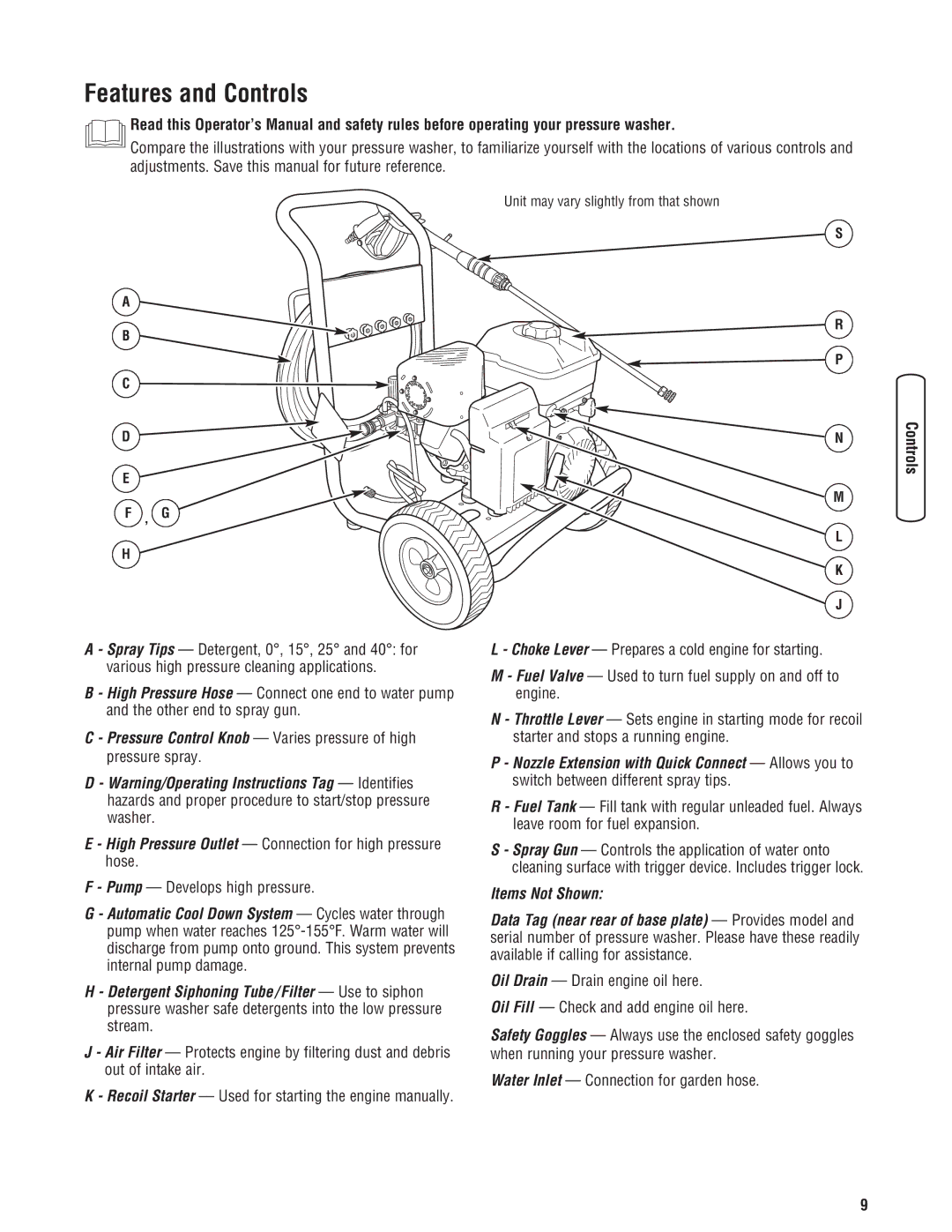
Features and Controls
Read this Operator’s Manual and safety rules before operating your pressure washer.
Compare the illustrations with your pressure washer, to familiarize yourself with the locations of various controls and adjustments. Save this manual for future reference.
Unit may vary slightly from that shown
S
A
![]()
![]()
![]()
![]()
![]() R B
R B![]()
![]()
![]()
![]()
![]()
P
C
D ![]()
![]()
![]()
![]()
![]()
![]()
![]()
![]()
![]() N
N
E
![]()
![]()
![]()
![]()
![]()
![]() M F , G
M F , G![]()
![]()
L
H
K J
A - Spray Tips — Detergent, 0°, 15°, 25° and 40°: for various high pressure cleaning applications.
B - High Pressure Hose — Connect one end to water pump and the other end to spray gun.
C - Pressure Control Knob — Varies pressure of high pressure spray.
D - Warning/Operating Instructions Tag — Identifies hazards and proper procedure to start/stop pressure washer.
E - High Pressure Outlet — Connection for high pressure hose.
F - Pump — Develops high pressure.
G - Automatic Cool Down System — Cycles water through pump when water reaches
H - Detergent Siphoning Tube/Filter — Use to siphon pressure washer safe detergents into the low pressure stream.
J - Air Filter — Protects engine by filtering dust and debris out of intake air.
K - Recoil Starter — Used for starting the engine manually.
L - Choke Lever — Prepares a cold engine for starting.
M - Fuel Valve — Used to turn fuel supply on and off to engine.
N - Throttle Lever — Sets engine in starting mode for recoil starter and stops a running engine.
P - Nozzle Extension with Quick Connect — Allows you to switch between different spray tips.
R - Fuel Tank — Fill tank with regular unleaded fuel. Always leave room for fuel expansion.
S - Spray Gun — Controls the application of water onto cleaning surface with trigger device. Includes trigger lock.
Items Not Shown:
Data Tag (near rear of base plate) — Provides model and serial number of pressure washer. Please have these readily available if calling for assistance.
Oil Drain — Drain engine oil here.
Oil Fill — Check and add engine oil here.
Safety Goggles — Always use the enclosed safety goggles when running your pressure washer.
Water Inlet — Connection for garden hose.
9
